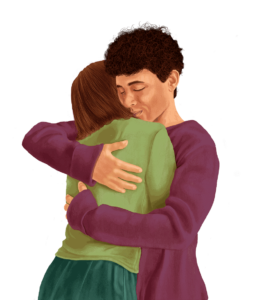Music can be a lot of things to a lot of people. It can serve as an escape, a source of motivation, or a way to heal. Music is a great medium to help regulate anxiety or to process trauma and grief. When you feel the world is on your shoulders, having mechanisms to cope with anxiety and depression are key for living a fulfilled and happy life. Below, we’ll discuss the types of music therapy and how they can help those suffering from depression, anxiety, PTSD, or addictions.
Music and the Mind
Scientists have studied the effects of music on the mind for many different applications, from mental health to school performance. They’ve found quite a bit of information on how music can affect both brain development and mental health concerns like anxiety and depression. For example, music played as background noise can help with cognitive performance in senior adults, with upbeat music causing improvements in speed and both up- and downbeat music helping with memory.
Music and Mental Health
Mental health can be a tricky balance for some, especially those prone to depression, anxiety, and addictions. These conditions can be exasperated by stressors that can occur in everyday life. A 2013 study showed that those who listen to music before a stressful event had an easier time recuperating from the event, when compared to not listening to anything or only listening to the sound of rippling water.
Fibromyalgia patients deal with constant pain and discomfort caused by an overactive nervous system. A different study than the one mentioned above showed listening to music for an hour each day reduced the pain for these patients and offers some promise of music as a pain management technique over strong pain killers or addictive medicines.
When it comes to mental health concerns like anxiety, addictions, depression, and PTSD, having a coping mechanism, like music, is essential for overcoming relapses.
Music Therapy for Mental Health
Music therapy is a technique for processing emotions and coping with them in every day life and can help many people with depression and anxiety. The four types of music therapy include lyric analysis, active music listening, songwriting, and improvisation music playing. Music listening sessions with jazz music or group percussion playing sessions have both been shown to have a positive effect on people dealing with depression.
How does this work? Neurological researchers say that music changes the brain by triggering the release of different types of neurochemicals including serotonin and dopamine. Dopamine is thought to control the reward center in the brain and, when stimulated, helps patients feel better. Oxytocin, another chemical released by listening to music, helps people build meaningful connections with others. This feeling of connectedness is important for fighting depression, anxiety, and addictions.
While music is a great tool for helping with mental health concerns, sometimes a little extra help is needed. If you find yourself struggling with depression, anxiety, PTSD, or addiction, reach out to our team at Core Recovery to discuss the integrated outpatient mental health programs available to help you lead a fulfilled life.




